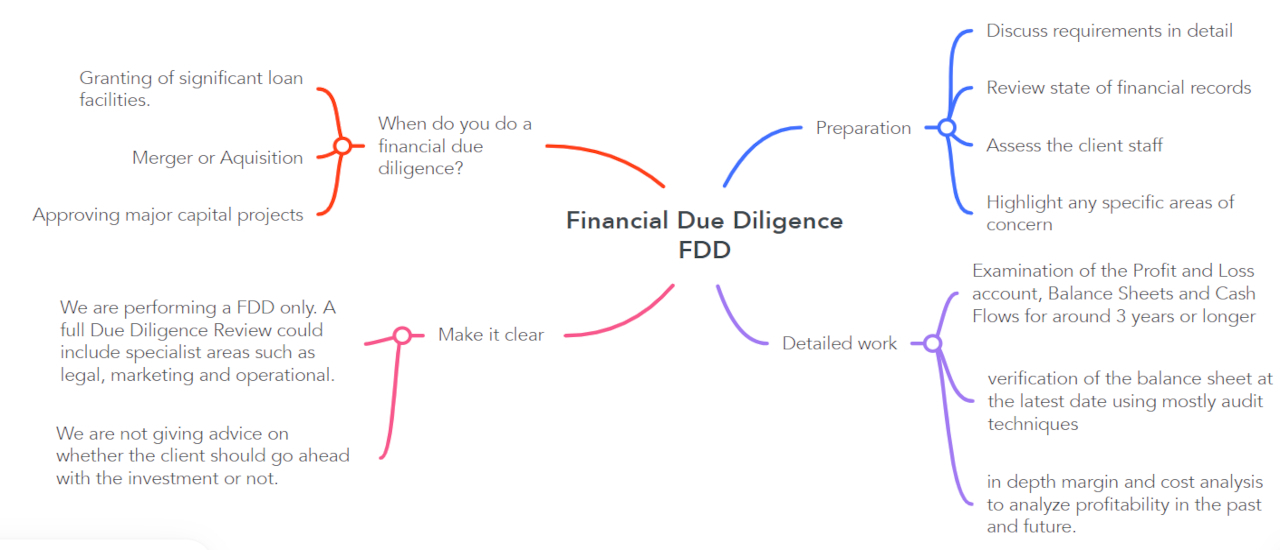
Financial Due Diligence Report (FDDR)
Financial due diligence requires an examination of financial records before entering a proposed transaction with another party. It is an in-depth focused examination normally carried out before agreeing:
- A merger or acquisition of a business.
- The granting of significant loan facilities.
- Approving major capital projects.
- Any significant financial transaction which will have a major impact on the business.
Banks and venture capital companies usually insist on an FDDR as part of their own verification process before they will extend facilities in any deal. They will often issue detailed instructions on what they want to cover and how they want the results of the review to be presented.
Note that a financial due diligence is often part of a wider investigation which can include specialist areas such as legal and operational investigations. It is very important to work closely with all parties to ensure that any areas of overlap are agreed properly.
Although this examination process often uses audit techniques an audit report is not normally a legal requirement and usually there is no formal opinion expressed.
The normal life cycle of a financial due diligence report could be:
- Discuss requirements in detail using the latest reliable financial accounts.
- Review the state of the financial records and whether the documentation will support a review.
- Assess the client finance staff.
- Highlight any specific areas which may be of concern.
- Agree the purpose of the review. In most cases the main work starts with a historical examination of the Profit and Loss account, Balance Sheets and Cash Flows for around 3 years or longer to gain an understanding of the reliability of the accounts.
- Carry out a verification of the balance sheet at the latest date using mostly audit techniques to verify balances.
- In some cases do in depth margin and cost analysis to analyze profitability in the past and future. We may perhaps create discounted cash flow analysis to assist in investment valuation.
- Make the purpose and scope of the review clear and agree this with all stakeholders. Ensure that the scope is signed off with an agreed timetable and key milestones.
- Make sure that all stakeholders are aware that we are not giving advice on whether the client should go ahead with the investment or not.


